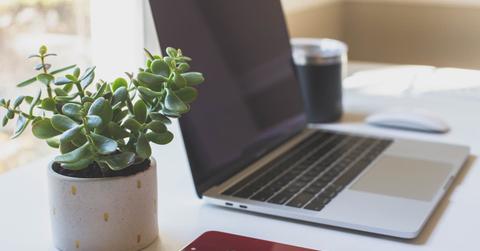
photo credit: Dayne Topkin on Unsplash
Avoiding Burnout During the Pandemic
By Jamie RolloMay 12 2020, Updated 6:43 p.m. ET
The stay-at-home orders have brought many people an influx of free time. While many people are making the most of that time and encouraging others to do the same, it is imperative for those working from home to be wary of burnout. Even before the coronavirus pandemic, our work culture has been centered around achieving maximum productivity. That ingrained stress, however, can lead to lower quality of work especially for those in creative and decision making fields. According to the author of Hustle & Float: Reclaim Your Creativity and Thrive in a World Obsessed with Work Rahaf Harfoush, everyone should be more cautious of burnout now more than ever.
“Since the Industrial Revolution, the dominant philosophy of work has centered around productivity as the only metric that’s important for success,” Harfoush said in a Q&A with Bloomberg. “We’ve been made to believe that if we aren’t struggling and hustling, we don’t deserve our success. And now, our relationship to work has become tied to our sense of self and self-worth. But this ideology runs counter to scientific research that says that in order for knowledge workers to do their best work, they need space and unstructured time.”
Burnout is likely to happen now more than ever as our work lives enter into our personal lives at home. And because of the societal consensus that more free time equals more time to hustle, the anxiety and pressure of maximizing one’s efficiency is at an all time high. “Working nonstop simply doesn’t work. We have turned busyness into a coping mechanism” explained Harfoush. “Now, people are applying that to their personal time while sheltering at home, filling it with back-to-back Zoom calls, baking, workouts, and more activity.”
Harfoush said the best way to avoid burnout is to make sure that you are giving yourself “recovery time” and creating a system that “reflects how our brains actually function.” Essentially, if you complete a huge task make sure to give yourself a substantial amount of rest and recovery. “Resting doesn’t mean diverting from your goals but rather making it possible to achieve them,” said Harfoush. “I’m not saying don’t hustle. I’m saying, whether it’s a pandemic or not, it’s crucial to recover hard when you play hard.”
As baby steps, Harfoush suggests to start with taking a 15 to 30 minute lunch break without doing anything else (which means no emails, texts, or other distractions). It is also imperative to keep a lookout for early signs of burnout. “If you’re feeling restless, anxious, or guilty, sit with it and start to dig deep to understand what’s behind it,” she said. “We have to give ourselves the time to shift from a more-is-better approach to internalizing the idea that recovery is as valuable as the work.”
Lastly, she added, “If you’re a high performer and recovery isn’t an intentional and strategic part of your time and workflow, you’re only damaging your output in the long run.”

